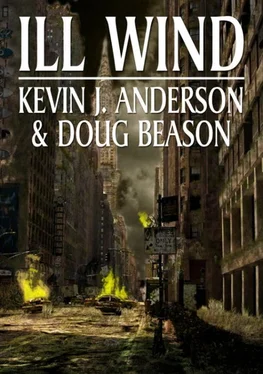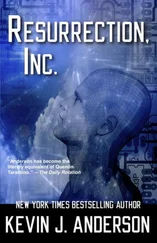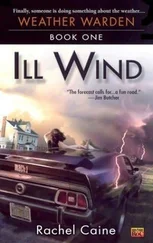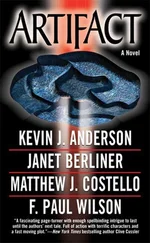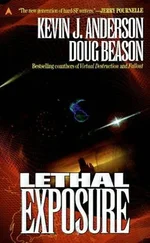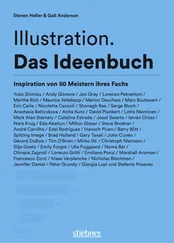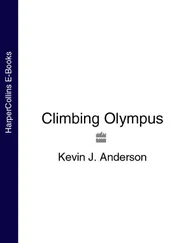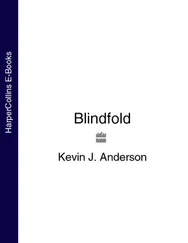Their home had a small yard and low property value, located too close to the BART mass-transit tracks—but it was home. He and Daphne had chosen to live there in the thick of things, among the people they wanted to help. The lawn was losing its battle against the thistles and weeds, which looked greener than the drying grass. A faint, sour odor of pesticide drifted over from his neighbor’s lawn, but the other grass didn’t look any better off. Gang graffiti was scrawled on some of the brick fences nearby, but street kids left him alone, especially since he had taken some of them on day trips out to state parks.
Normally, he would have taken BART into San Francisco, jostling and standing among all the other commuters, but neither the TV nor the radio station was close to the BART line; it would take him all morning if he worked his way through the labyrinth of MUNI bus service. Instead, he’d drive his own green Pinto station wagon, which had served him faithfully for 200,000 miles now.
When Harris sat behind the wheel, the springs creaked under him. He put the key into the ignition and tried to start the engine, but the Pinto groaned and coughed like a cat trying to spit up a furball. Something smelled rotten, worse than the burnt-rubber smell of the old vinyl seats. He frowned and twisted the key again. He hadn’t been having any trouble with the car. The engine struggled, but would not turn over.
Harris slammed his palm on the steering wheel, eliciting a thin peep from the horn. He couldn’t miss his interview. “Why today, of all days?” The car didn’t answer. Daphne peeked out at him from the small kitchen window and duck away. He tried the key once more, with no better luck. He looked at his watch again.
Harris ran inside the house. Daphne was already on the phone, trying to call emergency road service. The line was busy. She hung up and dialed again. Frustrated, Harris grabbed the thick Oakland telephone book and flipped to the yellow pages.
“I don’t have time for this, baby,” he told her.
“I know you don’t.”
She called one emergency service listing after another; most of the lines were busy. She mimicked one recording with a sarcastic, old-biddy voice, “sorry, but all of our personnel are currently out on calls assisting other customers.”
“What am I supposed to do?” Harris asked. “This is the dumbest excuse I ever heard of for missing a big interview! When was the last time we drove the car?”
“Yesterday. It sounded kind of ragged then.”
“It always sounds ragged.”
Daphne finally got through to the last place listed, but after she cocked her head and listened for a moment, she slammed the receiver down. “Fifteen names ahead of us,” she said, “at least a two-hour wait.”
“Why on Earth are all the emergency vehicles already out on calls? What the hell is going on?” Harris muttered.
Daphne waggled her finger at him. “Bitch about it later, Jackson. Right now you get your ass down to the BART station, then get a cab inside San Francisco.”
“A cab! We can’t afford that!”
“You can’t afford to miss this interview either. This is important. Now go!” She swatted him on the butt as he sprinted out the door.
In his best clothes, Jackson Harris began to run toward the BART station.
In the early morning rush hour, Todd Severyn joined three million other people trying to stampede into the city, bumper to bumper. By now he hated downtown San Francisco and wanted desperately to be back in Wyoming.
His arraignment hearing was set for 10:00 AM.
Crawling across the Bay Bridge, expensive foreign cars surrounded him, BMWs and Mercedes with conservative paint jobs, Porsches in blazing tasteless colors. They all kept a car length from Todd’s heavy Ford pickup that could squash them in a second. He rolled up the windows after choking down some of the noxious fumes. Toward the horizon, even the air had a gray-brown tinge.
Wearing new polyester slacks—bought for the impending arraignment—instead of his usual jeans, Todd was hot and uncomfortable. He hoped he would make a good impression; he had even polished his boots. He seemed to squeak when he moved, and he had nicked himself shaving.
He wasn’t supposed to do anything but stand and look innocent—and get there on time. Oilstar’s lawyers would handle the rest, but that didn’t put him at ease. He’d never even met them.
Through gaps in the bridge guard rails, he caught glimpses of the glittering water underneath. Oil still shone on the surface, but it seemed sparse now, clumpier. Dozens of recovery boats dotted the black lake, nibbling at the perimeter. Alex’s little Prometheus bugs seemed to be working.
The traffic inched ahead. Todd had the urge to pound his fist on the loud horn of his truck, but that would make him look as bad as the other city jerks. A charcoal-gray Mercedes in front of him belched bluish smoke from its diesel engine; in the car beside him he could see a woman squinting in her rear-view mirror, applying makeup; behind him, a man read the newspaper while driving, casting an occasional glance at the road.
Todd leaned forward and turned up the radio. The country & western DJ spent more time jabbering than playing music. He wished the guy would just shut up and get on with the tunes.
“—unusually high number of breakdowns, making traffic on all Bay Area freeways a real mess. Two cars stalled or out of gas on the Golden Gate Bridge, one on the Bayshore freeway, three on the San Mateo Bridge. Dumbarton’s clear—so far. You cowhands must have had one rough weekend to forget to fill up your cars! The rest of you all, be prepared for a long ride into the City.”
Finally, the DJ played a new Weird Al single, “The Wreck of the Oilstar Zoroaster ” to the tune of an old Gordon Lightfoot song. Todd slapped the steering wheel and guffawed.
He glanced at his watch; in Wyoming it would have taken him less than twenty minutes to cover twice the distance. He tried not to let it get to him. Short of ramming the car up front, there was little he could do about it.
Another ten minutes passed before he moved far enough ahead to see the amber, blue, and red lights of a CHP cruiser. Three new vehicles cluttered the right-hand lane: a wine-colored Lexus, a Honda Accord, and a Mistubishi something-or-other. What the heck was going on here—nails in the road? A pileup? New cars didn’t just break down by themselves, all at the same time. Smiling to himself, he muttered, “Next time, buy American!”
Traffic muscled its way past, like an arm-wrestling match between aggressive drivers. Todd moved his big truck into the gap and gritted his teeth. Other cars moved out of his way, and eventually traffic accelerated to its normal hectic pace.
The confusing maze of exits off the bridge came up soon, shooting streams of traffic in every direction like silver balls in a pinball game. Todd got the panicky sensation of not knowing where he was going, with too many cars around him to forgive mistakes. He finally spotted a green-and-white sign directing him to the Civic Center turnoff, and he sighed in relief. He craned his neck and noticed two other cars—a van and a VW Beetle stalled on the exit ramp. Must be a good day for towing services.
Once off the freeway, he began fighting stoplights, crazy intersections, and idiots double-parked right in the lanes of traffic. He kept glancing down at the folded map on the passenger seat, trying to find his next turn, but he could barely keep track of all the streets he passed. At each forced stop, he rechecked his route. He looked at his watch, a solid Timex he had owned for ten years, helplessly watching the minutes tick away. Jeez, he thought he had left himself plenty of time.
Читать дальше
